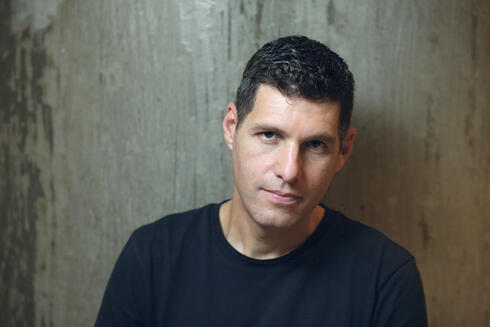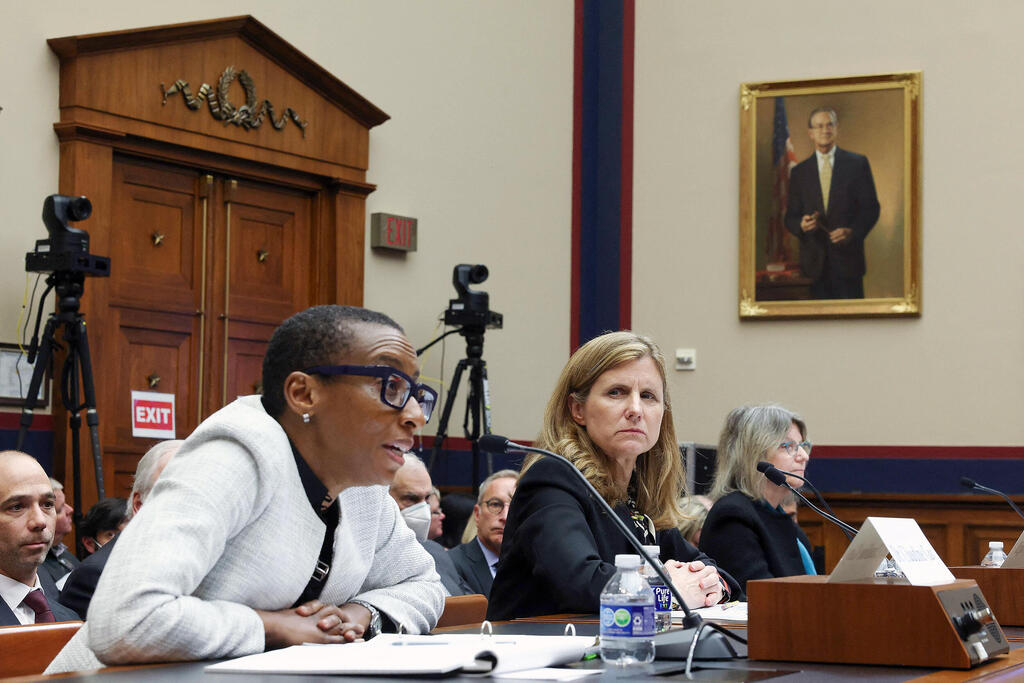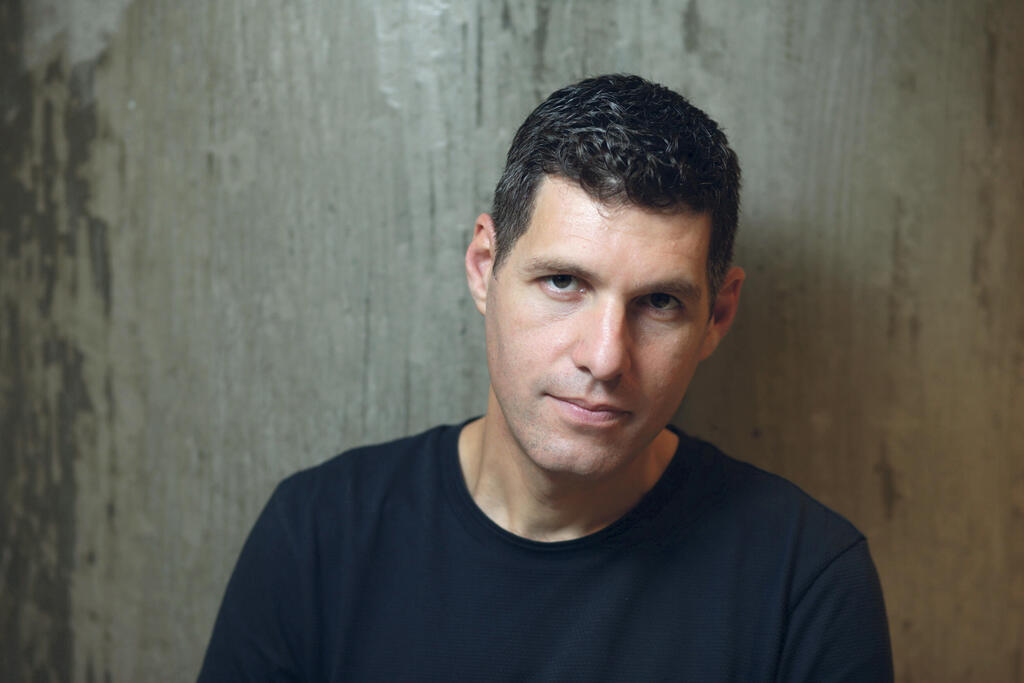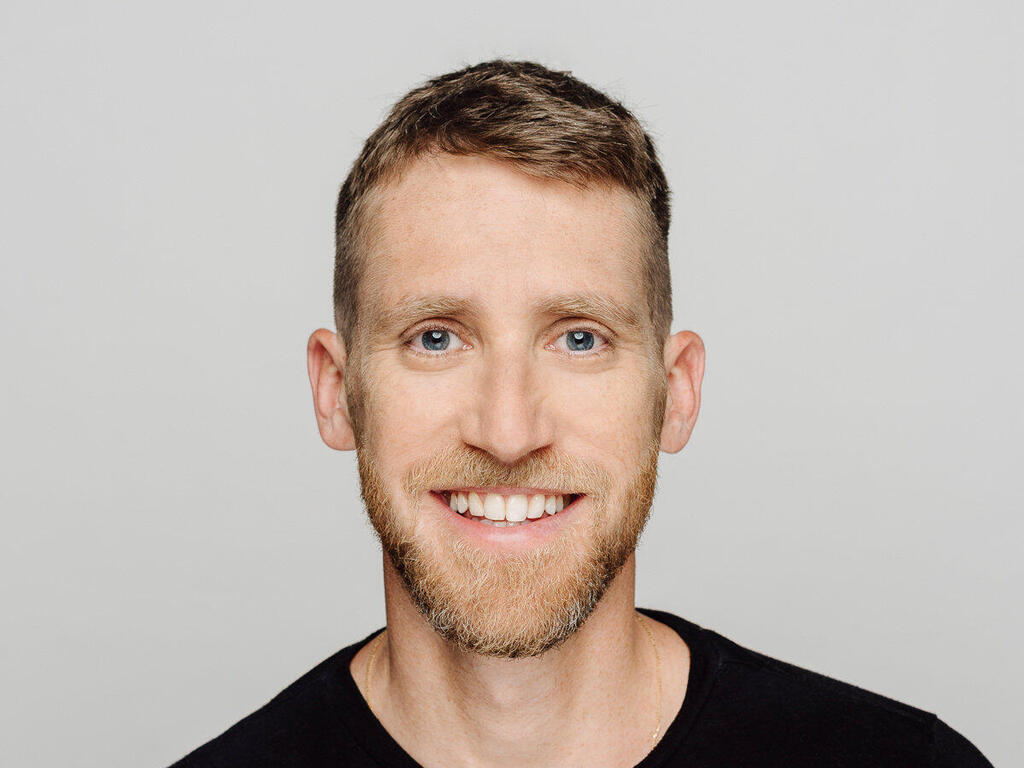
Inside Yaron Singer’s surprising $400M sale to Cisco
Cisco’s acquisition of Robust Intelligence went almost unnoticed, but its impact could redefine AI security.
Back in the day, this exit would have made big headlines: Israeli Yaron Singer sold the startup he founded, Robust Intelligence, to communications giant Cisco for $400 million, according to reports in the U.S. But in practice, this deal, completed at the end of August, passed almost unnoticed. This is partly related to the situation in Israel (although Robust is an American company), but mainly due to the fact that Cisco is in the process of laying off 7% of its workforce—6,000 employees. In this reality, it’s not advisable to make a big show of such a large expenditure on a 3-year-old startup with approximately $10 million in revenue and 70 employees.
Cisco kept the deal quiet, announcing it only on a blog by one of its executives. However, it sent Singer to present his company to 30,000 people at its annual event in Las Vegas—just four hours after the deal was signed at 4 a.m. Singer (44), who owned a third of Robust, became a multi-millionaire.
Robust operates in the hot field of AI, developing a firewall for artificial intelligence—a tool designed to protect AI from making critical mistakes. No matter how sophisticated AI is, errors can still happen, and these errors can have far-reaching consequences. Robust's product is designed to detect and fix such mistakes. This technology was developed long before ChatGPT and its competitors burst onto the scene, making it the hottest industry in tech investment.
Congratulations are in order, right? The sentiment is not so clear-cut: Cisco didn’t issue an official announcement about the purchase or disclose the amount. When I interviewed you two and a half years ago, it seemed like Robust could have been worth billions.
"I understand the doubts," Singer says. "Right after the event in Vegas, a client from one of the largest banks in the U.S. called me and said, 'I thought you were headed for an IPO.' But we started receiving more and more acquisition offers, which became increasingly serious. This made me reflect on why I founded Robust: Was it to raise more money or to protect AI applications, which are growing in use on the Internet? The opportunity to make a real, large-scale impact is much more compelling, and this will happen when our solution is integrated into Cisco’s systems, which reach almost everywhere, rather than with another round of funding.
"Even as a professor at Harvard, I constantly asked myself: What am I here for? Eventually, I realized I wasn’t there just to publish another paper but to make an impact in the world. That’s why I gave up tenure to start Robust."
How did the surprising exit come about?
"Our relationship with Cisco began a year ago when they invested $5 million in Robust. In early August, I went on a family vacation to Switzerland, my first since founding the company. I informed all the investors that we were in talks with Cisco, and after I returned, we would decide who to move forward with and complete the funding round. But just as I landed in Zurich—before we even started the planned hikes with the kids—I received a text saying the number two at Cisco wanted to meet me, so I flew back to the U.S."
Why choose Cisco, which is often seen as a veteran communications giant?
"We received three other acquisition offers from different companies, but in the end, Cisco matched the best offer.”
An exit may not have been the original dream for Robust, but it’s the best outcome. The company raised about $40 million in just two funding rounds and returned the investment many times over. Meanwhile, many ventures are closing or fading away without much notice. It’s no coincidence that 2024 became the year of mergers and acquisitions, as many startups ran out of capital, and the IPO window on Wall Street remains shut.
Still, when it comes to the hot field of AI and cybersecurity, and a company founded by an academic star, it’s hard not to think in terms of billions, rather than hundreds of millions.
Wiz turned down a $23 billion offer from Google this year. Didn’t that make you think twice?
"Remember that before Wiz, Assaf Rappaport and his partners had Adallom, which they sold to Microsoft for $320 million in 2015. Over the next four years, they allowed the cloud cyber market to mature before founding Wiz. The cyber-AI market today is even less mature than the market Adallom was in back in 2015. Look at what they built within Microsoft."
Indeed, the seemingly modest sale of Adallom laid the groundwork for Microsoft's multi-billion-dollar cloud cybersecurity division. This was also Google’s vision when it made its unprecedented offer to Wiz. "I know this market better than anyone, and I’m confident there’s a billion-dollar company here. But that’s not something that would happen right now," Singer explains. "Robust could have grown into a billion-dollar company, but it would have taken more than four years. Could we have moved faster? Yes, but this was my decision. Sequoia and Tiger Global, which invested in Robust, are both satisfied and disappointed at the same time—and that’s fair. They also saw a big company here, but they realized that building it would take another four years at least."
The AI world has ignited human imagination over the last two years, but it also brings fear and uncertainty—not just about the relationship between humans and machines but also about business models. Sequoia, Robust's largest investor, and a tone-setter in the tech world, recently published an article titled "AI’s $600 Billion Question." In it, the venture fund estimated that despite an anticipated half-trillion-dollar spend on AI chips, the combined revenue of all giants in the field—from Google and Microsoft to Apple and Amazon—will only reach $10 billion. This gap, which will take many more years to close, is why Sequoia concluded that selling Robust was the better route.
"The best analogy for AI today is the internet in the early 2000s," Singer says. "Back then, there was understandable euphoria because it was a leap that changed life and business in ways no one could have predicted. AI is in a similar place today, with decades of development still ahead."
The interest in Singer and Robust underscores the commotion surrounding AI. "Since the release of ChatGPT and similar technologies, we realized that while communication networks are protected against conventional attacks by existing cyber solutions, they aren’t prepared for the AI applications now running everywhere. An attack on these systems could cause them to malfunction, perform unintended actions, or even expose sensitive information."
Like what?
"For example, an innocent query in ChatGPT could lead to stealing data from your PC and exposing it elsewhere. In other cases, an attack on an AI program could cause it to give financial or medical advice, even though it's not supposed to. Attackers can craft a prompt for a bank's AI system, forcing it to recommend specific investments without the bank's knowledge. There’s a tension between the technological progress AI brings and the need to ensure the safety of humanity—and Robust stands right in the middle of this."
Singer says that shortly before our conversation, he was invited to "The New York Times" offices to advise on its lawsuit against OpenAI, claiming that ChatGPT used information from the Times without permission. "Robust demonstrated how easy it was for OpenAI to extract this data. From there, the leap to extracting personal medical records or tax information is short," he says. "The privacy breach is unprecedented."
Cisco, valued at about $200 billion, generates $55 billion in annual revenue. Compared to competitors like F5 and Akamai, Cisco is much larger. Founded in the mid-1980s, Cisco capitalized on the telecom revolution of the 1990s to leap ahead and made a big push during the dot-com bubble of 2000 through numerous acquisitions, including in Israel. Its local development center, built on these purchases, now spans several offices between Netanya and Tel Aviv, employing about 1,000 people.
At the height of the bubble, Cisco briefly overtook Microsoft as the world’s most valuable company, reaching a market cap of half a trillion dollars. However, many of its acquisitions did not fare well. Now, it’s trying to reinvent itself, focusing heavily on AI and cybersecurity. It has established a billion-dollar AI investment fund and has already invested in several big names, including Grok, Mistral, and Cohere. In early 2024, Cisco completed its largest acquisition yet, buying the American cybersecurity firm Splunk for $28 billion.
Now, it's Robust’s turn. After the acquisition, Singer will become one of Cisco’s senior executives. While he won’t say this explicitly, those close to him believe he will lead the company’s AI transition and may also be tasked with building development teams in Israel. Although Robust employees, many of whom are now millionaires, are not obligated to stay at Cisco, most plan to continue, according to Singer, himself included—despite Cisco’s somewhat unglamorous image.
"The hardest part of running a startup wasn’t the fundraising or the customers; it was the responsibility I felt towards the people who came to work with me," Singer says. "Almost every employee had offers for prestigious Ph.D. programs or jobs at Silicon Valley giants or the chance to start their own company. My biggest pressure was ensuring their decision to stay with the company would pay off in the end."
Singer is an unconventional figure in the high-tech landscape, often choosing the most non-trivial paths. He grew up in Tel Aviv, the son of a professor of electrical engineering at Tel Aviv University and a physicist with a PhD who worked at the Ministry of Defense. From a young age, he stood out as a computer prodigy, and it seemed his path to Unit 8200 in the army was certain. However, at the last minute, he decided to serve as a combat officer in a special operations unit, assuming he’d spend the rest of his life working with computers. He saw this as a great opportunity to try something different.
After completing his military service and earning a degree in mathematics and computer science from Tel Aviv University, Singer pursued a PhD in computer science at UC Berkeley. He then joined Google, working on the development of Google Translate, which was in its infancy at the time. Just as it seemed he had found his place in Silicon Valley, he decided to give up his dream salary and return to academia.
At the age of 33, Singer became a professor in the computer science department at Harvard, where he published groundbreaking research in machine learning and artificial intelligence. By 40, he had earned tenure, and once again it seemed he had found his place. However, just a year later, he felt the urge to make a greater impact on the world, which led him to found Robust.
Singer’s unconventional approach extended to his company management. This was evident in small details, such as the "weekend reception ceremony" he introduced at Robust, where, at least initially, employees in Menlo Park, California, cleaned the company offices themselves — not just desks but also the bathrooms. In the mornings, they would attend joint physical training sessions led by Singer, and company events were often held at campsites. "The American workers loved these ideas that I brought from the army," he once told Calcalist.
Given your penchant for change, do you feel tempted to return to Harvard after the exit?
"No, no. I’m going to Cisco, not back to academia, but for the first time in a long while, I’ll be giving a lecture soon," he smiles.
3 View gallery


Hearing for Harvard President Claudine Gay, alongside University of Pennsylvania President Liz Magill.
(Photo: Kevin Dietsch/AFP)
Harvard played a leading role in recent controversies: it began with a student organization declaring that the massacre "did not happen in a vacuum," followed by demonstrations chanting "from the river to the sea," and culminated in a high-profile hearing in the House of Representatives, where Harvard President Claudine Gay, alongside University of Pennsylvania President Liz Magill and MIT President Sally Kornbluth, struggled to unequivocally answer whether calls for the genocide of Jews violated their institutions’ codes of conduct.
Gay and Magill resigned shortly after, followed six months later by Minouche Shafik, the president of Columbia University. The campuses have calmed somewhat since then, perhaps aided by the summer break.
You spent many years at Harvard. Did you feel the anti-Israel sentiment, or were you surprised after October 7th?
"All of us on the faculty repressed what we saw. There wasn’t anything explicitly against Israel at the time, but in general, prestigious universities in the United States have long held an agenda of challenging the status quo. We didn’t fully grasp the dangers of this mentality or its implications. And it was difficult to fight it.
"We accepted leadership failures. From the deans to the president, these were often people with neither the academic depth nor the ability to lead. At best, they were bureaucrats avoiding confrontation. Sadly, this is the case at many U.S. universities. The best faculty members often don’t want to become presidents or deans; they want to cure cancer or develop AI. Claudine, for example, had only one doctoral student throughout her career and published just ten academic papers,” says Singer, who, despite his young age, published over 50 articles and supervised five doctoral students before entering the industry."
Why didn’t anyone object in real time? Were you all swayed by diversity and inclusion considerations?
"The prevailing mindset was to go along with the agenda, keep your head down, and not push back. In real-time, of course, I didn’t scrutinize Gay’s academic record. I didn’t imagine she had achieved so little academically. In the past, deans and presidents were academic giants, like Larry Summers, who served twice as Treasury Secretary, under both Clinton and Obama, and had over 200 academic publications."
If you were still a professor at Harvard, what would you do?
"What’s happening in U.S. universities is shameful. Jewish students feel increasingly uncomfortable on campuses, but it’s hard to say I would resign. It’s easy to walk away personally or even out of principle, but for the common good, we must stay. Leaving would play into the hands of those who oppose Israel and would mean relinquishing positions of influence."
Do you believe the events, resignations, and pressures from the financial and legal sectors have profoundly changed anything on campus?
"Even if there has been a shift, and I think the pendulum has moved, it’s too little, too late. It’s not much of a consolation."
What does it mean to be Jewish in academia today in the United States?
"It's unbelievable to see students supporting Hamas or faculty members justifying terrorism. It's absurd. I don't think anyone could have predicted this. More than half of the computer science faculty at Harvard are Jewish, and it's similar in physics and mathematics. Universities were not hostile environments for Jews or Israelis. On the contrary, during my time, being Israeli was an advantage. In every conversation about privilege, I felt that being Israeli was a huge asset."
Do you still feel it's an advantage to be Israeli today? In recent announcements about acquisitions of Israeli companies, like the sale of Own to Salesforce for $2 billion, there's no mention of their Israeli origins.
"There's no doubt that, from an investor's perspective, the level of risk associated with Israel has increased over the last year and a half. But look at Sequoia—they opened an office in Israel during the war. The damage is both image-related and operational. A start-up is inherently a risky venture, and if, for example, the systems engineer responsible for deploying critical software suddenly goes on reserve duty, I could lose a client. It's incredible that Israeli companies are still managing to operate and deliver as usual during such challenging times."
Have you seen an increase in requests for relocation by Israelis since the war?
"Yes, absolutely. There's definitely more traffic from Israel. The situation is tough, but I believe we’ll overcome it. Israel has incredible human capital, and people here in the United States still believe Israelis know how to build companies and create value. For them, the benefits still outweigh the risks. Take AI21 as an example: it's independent, developing its own language model in Israel. Professor Yoav Shoham, one of its founders, also advises Robust. Israel is a powerhouse in AI within academia, and I can humbly count myself among many faculty members here who are leading in this field. Personally, I'm eager to invest in Israeli companies and recruit talent from Israel, despite the risks."
You've recently started recruiting people for a development center in Israel. Are you thinking about returning to Israel and starting your next venture there—perhaps training the next generation of AI talent?
"Right now, I'm committed to Cisco, but I will be spending much more time in Israel—not just for investments, but for other projects as well. The human capital here has enormous potential to create a new generation of post-ChatGPT companies that will redefine the market."















